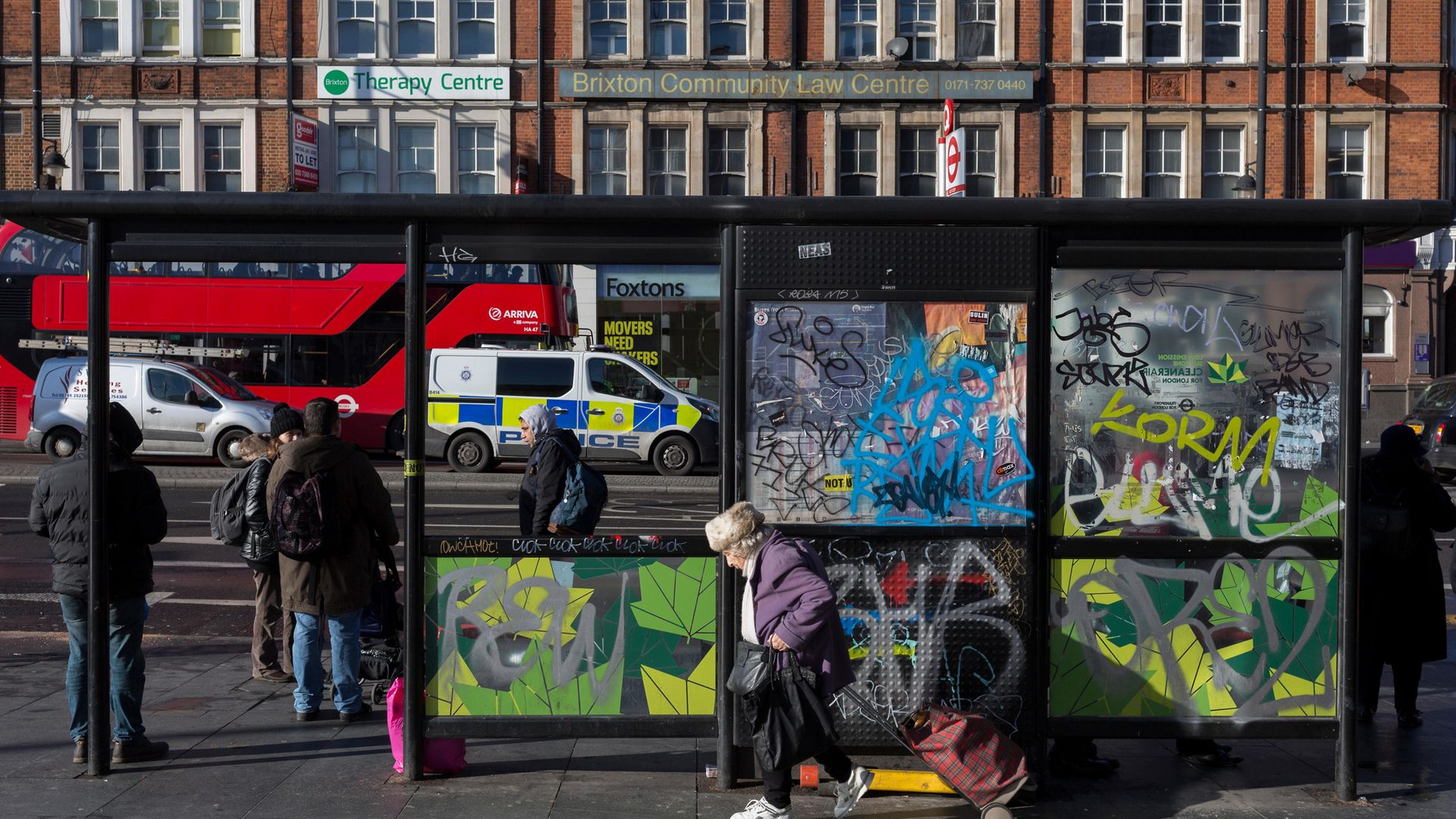
As he is knocked off his bike for a third time, WILL SELF wonders what effect the pandemic has had on the reaction of passersby.
The first time it happened, it was some young Trustafarian driving his dad’s Jag, and I lost my rag completely: ranting how he should learn to look in his bloody wing mirror before turning if he wanted to drive a car worth more than the average home. The second time it was Vladimir, a Ukrainian health and safety instructor, who, after I’d screamed some particularly choice invective at him, backed away shaking his head and crying out, “Oh, no, it is too rude!” Something I found both endearing and instantly calming. The first time someone on the pavement called an ambulance – the second time, it was Vladimir, as you might expect given his professional liabilities.
But the third time – which was on the Tuesday before last – the driver simply accelerated away into the night, leaving me lying in the roadway in front of two lanes of traffic. These other drivers, so far as I can remember because I was in shock – just leant on their horns until I managed to haul myself and my bicycle on to the central reserve, whereupon they, too, accelerated away into the night. The first time the concerned onlookers called an ambulance, and when it arrived the paramedics insisted on giving me a thorough check up: flashlight in eyes, ECG etc. The second time, although I had a number of superficial cuts that were bleeding profusely, both I and they knew I was pretty much unhurt, so they left without inviting me into their van.
And the third time? The third time there were a lot of eyes on the street, for the accident happened at the main junction in Brixton, right outside the police station. But the pedestrians behaved like the drivers: just standing and staring at me with all the terrifying passivity of zombies in a George Romero film. As I say: I was in shock – but it was the trauma of a physical impact massively enhanced by a psychic one: the awareness that no one was going to help me – that no one cared.
Is this a cultural shift worth remarking on – or am I reading too much into it. It would appear that a year of people being constantly placed in situations where they must regard their fellow citizens as an actual rather than a potential threat may have distressed yet more our already fraying social fabric. Were the ghouls of Brixton unwilling to come forward because they were worried about the virus – or, did they want to see the scene play out, and preferably bloodily? I wasn’t aware of anyone filming me as I lay in the road, but when I recalled my emotions more tranquilly, later, the incident reminded me of the first time I witnessed the conjunction of camera phones and crashes.
Standing at the end of Greek Street in Soho, I’d seen a cabbie plunge from his vehicle so precipitately in order to pursue a fare-dodger that he forgot to apply its handbrake. While he sprinted up the road after the offender, his black cab, slowly at first and then with mounting speed, coasted across Shaftesbury Avenue and through a plate glass window, straight into the gaudy red-and-gold interior of a large Chinese restaurant. By the time the hapless cabbie returned – and it took only a minute or so – a small crowd had gathered round the shattered window, and, phones aloft, were busily snapping away.
The relationship between the Metropolitan Police and the black community in my area is to this day a major clash of cultures – which is not to say that on one side are the law-abiding and the other the errant: there are such things as good cops walking the Brixton beat, and a couple of them turned up within two or three minutes to lend assistance. They were preceded by a man in his early forties with silvery hair and wearing a parka; and I’d like to offer heartfelt thanks to this Good Samaritan, who, while he was too late to help me get out of the road, managed to calm me down. This was needed: the car driver who’d hit the back wheel of my bike and thrown me to the ground had, as I say, driven away, and the pain of the immediate impact was considerable. Without anyone to hurl invective at, I was left bellowing to the lowering skies like a stuck pig about to receive his coup de grâce.
The cops took my details and offered to call an ambulance, which I declined. One said: “It’s down to the CCTV footage.” Something I knew fine well: “If we can get the number plate we’ll go after the driver… If not…” he trailed off. Yes, nowadays the only real witnesses to our lives and deaths are electronic ones. Michel Foucault’s concept of the panopticon was a carceral society in which the people took on the task of their own surveillance, and broke the fourth wall of their cells only to rat themselves out. But in the Potemkin panopticon that’s contemporary Britain, the cameras don’t work – and neither do the convicts.
What do you think? Have your say on this and more by emailing letters@theneweuropean.co.uk










